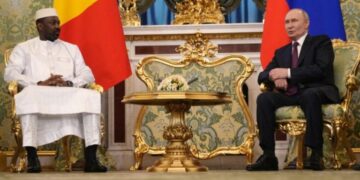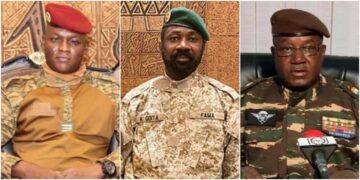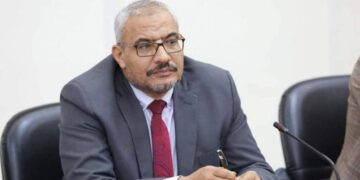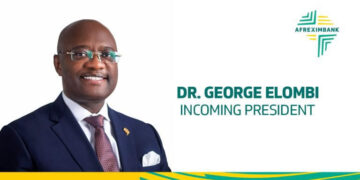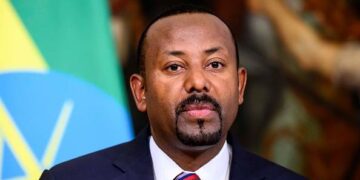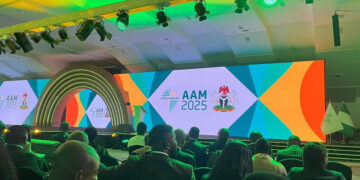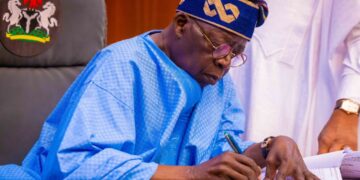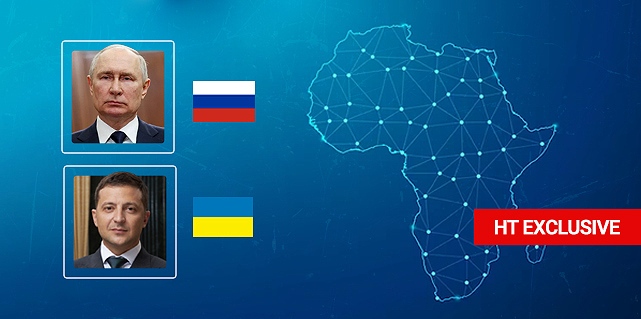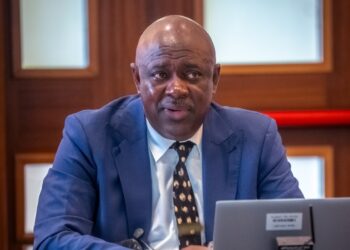It has been over 500 days since the start of the Russia-Ukraine war. A brutal 16 months of conflict that has caused a humanitarian crisis in Ukraine, with millions of people displaced from their homes.
The war has also had a significant impact on the global economy, causing energy prices to rise and disrupting supply chains.
While the war is being fought on the frontlines in faraway Europe, both sides have been engaged in a proxy battle in Africa to rally the continent behind their cause.
Eritrea and Mali have aligned themselves with Russia, while about half of African countries have consistently voted in favour of Ukraine in UN votes.
However, in a February 2023 UN resolution calling for Russia to withdraw its troops from Ukraine, almost half of the 32 states to abstain were African, while six others didn’t show up to the vote at all, a development which highlighted the continent’s growing neutral stance in the face of intensifying charm offensive by both Russia and Ukraine.
When Ukraine’s Foreign Minister, Dmytro Kuleba visited Ethiopia in May on a regional tour to drum up African support for Ukraine in the face of Russia’s “aggression” he acknowledged that the continent was indeed tilting more towards neutrality but “cannot continue to stay neutral”.
“We speak with our African friends and try to explain to them that neutrality is not the answer,” said Kuleba at a press conference in Addis Ababa, Ethiopia, home of the African Union.
However, African leaders including Chairperson of the African Union Commission Moussa Faki Mahamat beg you to disagree with Kuleba’s assertion.
Delivering a speech on May 25 to commemorate Africa Day at the African Union Commission (AUC) Headquarters in Addis Ababa, Mahamat expressed his disapproval over both countries’ tussle for influence on the continent.
According to him: “The will of each side threatens to transform Africa into a geostrategic battlefield. A new version of the Cold War is being recreated.”
Similarly, Burundi’s Foreign Minister Albert Shingiro reinforced Africa’s growing decision to not take sides, stressing that it was a well-conceived move.
Speaking at a press conference alongside Russia’s foreign minister Sergei Lavrov in Bujumbura, Shingiro could not have been more blunt when he said: “We have taken an abstentionist position, a neutral position, a position of non-alignment to prevent this conflict from reaching other regions, especially the African continent.”
“Nobody can win this war,” he added.
Powered by grains and weapons
There are two things of huge importance in this charm offensive. The supply of grains and the flow of weapons.
Ukraine and Russia are among the world’s largest producers of both grains and fertilizers, crucial to the harvests of many countries on the African continent.
The problem for Ukraine has been delivering its grain to Africa, with Russia controlling the Black Sea and hindering grain export from Ukrainian ports.
For now, a shaky deal has allowed grain to continue being exported. But Ukraine wants to persuade African countries not to switch to Russian grain, and to demand Russia stop obstructing the so-called grain corridor. But it remains a key bargaining chip for Russia.
The question of weapons is a murkier issue. South Africa was recently accused of selling arms to Russia, which it subsequently denied.
Even more telling, leaked US Pentagon documents obtained by the Washington Post suggested that Egypt had agreed to secretly sell 40,000 rockets to Russia, before appearing to backtrack and supply ammunition to Ukraine instead. Like South Africa, Egypt denied it.
Not only does Ukraine want African countries to cease selling weapons to Russia, but it’s also seeking arms for itself. Zelensky’s Chief of Staff, Andrei Yermak, admitted, “We need to establish diplomatic relations very quickly. We are looking for the weapons we need.”
Uneven influence
When it comes to diplomatic relations with Africa, the two nations have not started on equal footing.
Russia, and previously the Soviet Union, can draw on much longer historical links with many African countries, especially those in which it directly provided military support during the decolonization era.
In countries like Mali and Central African Republic, ongoing military assistance through the Russia-backed Wagner group mercenaries only deepens ties between the nations.
Mali’s Foreign Minister Abdoulaye Diop acknowledged such influence at a joint press conference with Lavrov who in February, made his first visit to the West African nation, where militants linked to al Qaeda and Islamic State have waged a decade-long insurgency that has spread to neighbouring countries.
“We welcome Lavrov with open arms. Russia is here at the request of Mali and Russia is responding effectively to the needs of Mali in terms of strengthening the capacities of our defence forces and security,” said Diop.
Ukraine, in contrast, has only 10 embassies across the continent, less than a quarter of Russia’s presence. Ukraine is fundamentally trying to rally countries around the world to support its 10 peace plan, calling for the withdrawal of Russian troops.
“The war must end”
Although far from speaking with one voice, African nations have chosen not to remain passive. Among recent efforts to mediate the war were separate meetings with Russia and Ukraine in June by leaders of six African countries led by President of South Africa, Cyril Ramaphosa.
In his announcement of the meetings, Ramaphosa said “Africa does need to put forward an initiative, a peace initiative, that could help to contribute to the solution of that conflict. The two leaders that I had occasion to speak to, President Putin and President Zelensky agreed that they would be willing to receive the mission of the African heads of states in both Moscow and Kiev.”
Indeed, both warring sides gave the African delegation a warm reception but the outcome of the meetings left much to be desired with President Zelenskyy saying he wouldn’t negotiate with Russia as long as it was on his territory.
“I clearly said several times at our meeting that to allow any negotiations with Russia now that the occupier is on our land is to freeze the war, to freeze the pain and suffering,” said Zelensky at a joint press conference with the African delegation after the meeting.
Similarly, President Putin wasn’t any more forthcoming and blamed Ukraine for the lack of progress in negotiations.
“I understand your concern, I share it, and of course, we are ready to consider any of your proposals. But we do not refuse negotiations, the Ukrainian side refused them. They even issued a decree. What do they want from us?”
So given Africa is no closer to a negotiated end to the Ukrainian war, has the whole trip just been a waste of time?
President Ramaphosa doesn’t think so. “Well, I think our mission was impactful. Its real success obviously will be measured by the ultimate objective of stopping the war. But the impact that it has had is that we were listened to as we gave an African perspective on the war that’s having negative consequences for our continent.
“Secondly, we’re probably the only group that has engaged the two leaders within a short space of time to put forward a very strong proposal and view that the war must end.”
Ramaphosa said they would have a follow-up meeting with Putin during the Russia-Africa summit scheduled for the end of July in St Petersburg.
Implications of Africa’s response to the conflict
The way we figure it, Africa’s response could help shape the global response to the conflict.
If Africa continues to largely remain neutral, it could help prevent the conflict from escalating into a wider war.
Also, Africa’s response could also help to shape the future of the continent.
Its efforts in playing a mediating role could help it gain increased influence on the global stage.
………………………………………………………………………………………..
Report written By John Ikani, Ebi Kesiena, Cynthia Akande and Victor Kanayo.













